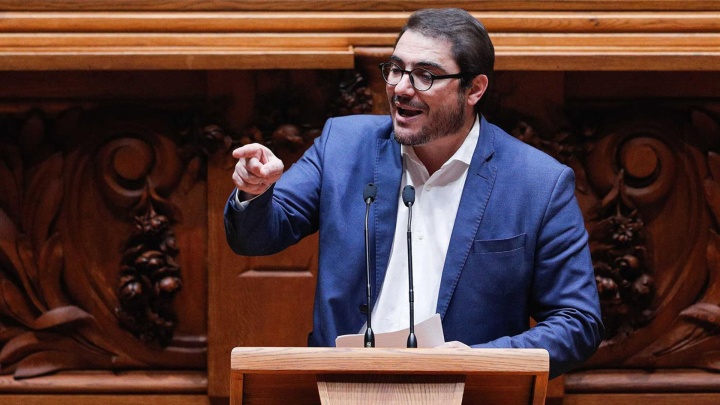It is necessary to relieve the pressure that is placed on the NHS, avoid its rupture and create conditions to provide for the other health care situations. The restrictive measures that have been imposed under the state of emergency do not allow the necessary stopping of the epidemic and are simultaneously throwing the country into an unsustainable economic and social situation.
We said fifteen days ago that the declaration of a State of Emergency should be rejected.
With the votes in favour of PS, PSD and CDS and the abstentions of the Left Bloc, PAN and Chega the state of emergency was decreed.
We said fifteen days ago that there were four essential reasons for that rejection.
First, because it completely disregards the first and main question facing the country, which is the definition of health security conditions so that national life can proceed as normally as possible under the circumstances we live in.
Second, because it enhances the lack of accountability of public authorities in favour of individual accountability and the limitation of rights, freedoms and guarantees.
Third, because it surfs on a wave of fear and panic that has been promoted on a mass scale, contributing to multiply the limitations on the exercise of individual or collective rights based on the misconception that this is where the solution to the problems we face lies.
Fourth, because, in matters as relevant as access to healthcare, the declaration of the State of Emergency not only did not defend constitutional rights in a state of exception but also constituted a roadmap for doing private business with public money under the excuse of the epidemic.
Fifteen days later we are discussing the renewal of the State of Emergency and the reasons for its refusal by the PCP remain. But the situation why we do this discussion does not.
The situation in which the country is fifteen days after the declaration of the State of Emergency makes it increasingly clear that the prescription is wrong.
The negative evolution of the economic and social situation seen in this period confirms that the restrictive measures are pushing millions of Portuguese people towards unemployment, poverty, indebtedness, ruin, uncertainty and insecurity as regards their future.
With many difficulties, sacrifices and losses, the country coped, in March and April, with the clash of measures that were then taken. Now the country cannot cope because it can't.
The country on which the measures of this State of Emergency are being thrown is a country with more than a hundred thousand unemployed than in 2019. It is a country that has endured almost two months of forced stoppage, that has gone through a summer of frustrated expectations and that is today battered by the threat of bankruptcy of thousands of MSMEs, with entire economic sectors close to collapse. It is a country where the uncertainty as to what is decided and the lack of justification for decisions do not allow people to clearly identify the reasons for the behaviour to be adopted.
Why should a restaurant have its opening hours limited if in that space the defined health safety rules can be clearly observed?
Why fairs and open air markets, held by definition in the open, must start by being prohibited without the Government beforehand defining maximum capacity rules, entry and exit circuits and circulation of people, distancing or sanitisation so that they can be carried out in health security?
If the main reason for concern in this moment is contagions in a family and co-habitation context, why is it that on a Saturday afternoon all outdoor restaurants of a city must be closed, its gardens and parks empty, the beaches or riverside areas without a living soul?
Why? What is the rationale for measures that seek to guarantee health by instilling fear and insecurity in people?
The prescription applied in Portugal, even if in a different dose, is the same prescription applied all over Europe. It is based on the hope that a vaccine will appear before we adapt our living conditions to the circumstances imposed by protection against the virus.
In the long run, this prescription has enormous risks. If the possibility of resorting to vaccination is not confirmed, then we will have to adapt, already late, our collective life, paying the cost of this delay dearly.
At the moment, the negative consequences of the prescription are more than clear. They are clear in its failure in terms of health, in the disastrous results it has in the economic and social level but also in the political level for feeding anti-democratic projects and visions that are based on the idea that all rights can and must be sacrificed in the name of fighting the epidemic, including Rights, Freedoms and Guarantees, labour, social, economic and even political rights
Rejecting the renewal of the State of Emergency, we insist that the people and the country need health protection measures and protection pedagogy but also, and above all, support measures so that national life can be carried out under health security conditions instead of being banned or suspended.
